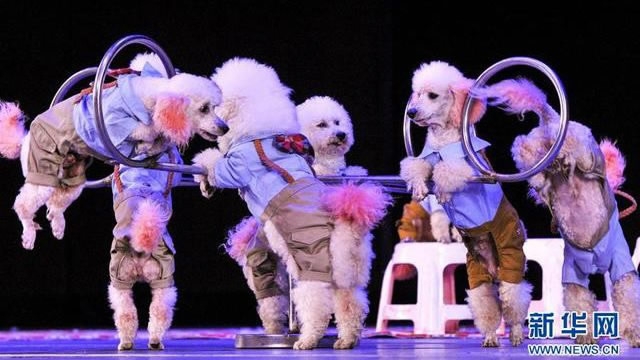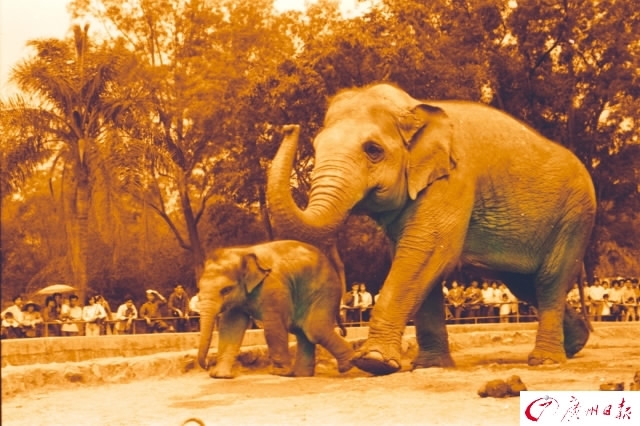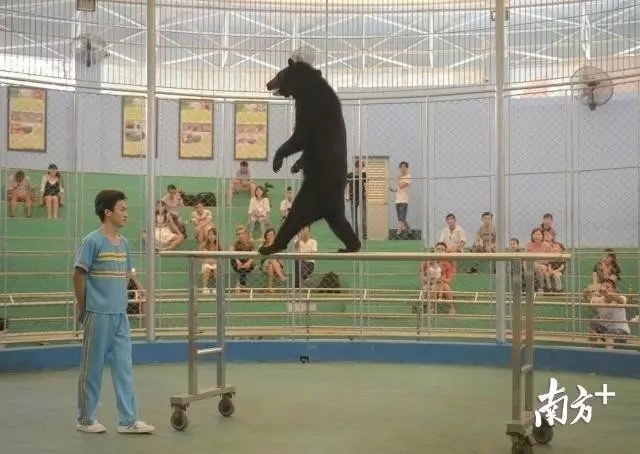
China
12:45, 03-Sep-2017
Guangzhou Zoo has pulled the plug on circus shows after 24 years
CGTN

The municipal zoo in southern China’s Guangzhou city has called an end to its circus show amid pressure to protect trained animals from the public.
According to Guangzhou Daily, the Guangzhou Zoo has decided not to renew the contract with the circus after the old one terminated on August 31, 2017.

Notice outside of the circus showing that it would end permanently. /Guangzhou Daily Photo
Notice outside of the circus showing that it would end permanently. /Guangzhou Daily Photo
The Guangzhou Zoo is one of the earliest to have circus shows in China, which became famous around the country even back to the 1960s.
During the past 24 years, an accumulated 10 million visitors watched animal performances at the zoo, a shared memory of many residents in the city.

Photo from Guangzhou Daily
Photo from Guangzhou Daily
Eight species of animals gave out regular performances every day, including monkeys walking along steel rope, chimpanzees playing drums, as well as parrots riding bicycles. Every show lasted about half an hour, and 10 shows a day during holidays.
However, in recent years, animal performances have become controversial among the public who call for more animal protection and the suspension of shows.

Photo from South China Plus, a news app featuring local news in Guangdong
Photo from South China Plus, a news app featuring local news in Guangdong
So the Guangzhou Zoo will renovate the space into a nonprofit education center to showcase animals’ behaviors, which will open to visitors free of charge.
This move has won many netizens’ support.

Screenshot of the comments on Weibo
Screenshot of the comments on Weibo
On China’s leading social media platform Weibo, @-xiaonainiu-cookie said, “I am for it! Even though the zoo is a very important part of my childhood memory, we should not gain happiness through the animals’ torture.”
@ZAza Fu also wrote, “The animals are really pathetic, which are forced for training. The zoo finally shows humanity.”
At the same time, the zoo has improved animal welfare promoted by international animal protection organizations, such as upgrading animals’ accommodation, as well as conducting a series of studies of animal behaviors.

Photo from Sina.com
Photo from Sina.com
In the guidelines of the development of national zoos, the Chinese authorities pointed out that Chinese zoos are still far behind advanced zoos in the world.
It outlines Chinese zoos should transform from traditional into the modern ones in the next 10 years, providing a favorable living environment for the animals, guaranteeing their healthy lives and scientific breeding.
Meanwhile, zoos should be involved in protecting wildlife and raise the awareness of the public in ecological protection.

SITEMAP
Copyright © 2018 CGTN. Beijing ICP prepared NO.16065310-3
Copyright © 2018 CGTN. Beijing ICP prepared NO.16065310-3